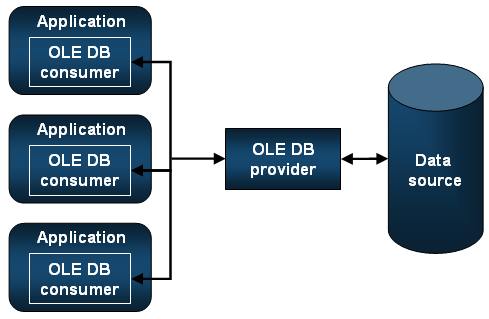Just How a Good Database Provider Can Improve Your Data Monitoring
Just How a Good Database Provider Can Improve Your Data Monitoring
Blog Article
Secret Functions to Try To Find When Selecting a Data Source Supplier
Choosing a data source provider is a vital choice that can substantially affect your company's data and operations management method. Among the vital functions to think about are scalability alternatives, which ensure that your system can adapt to growing demands.
Scalability Options
When selecting a data source supplier, comprehending scalability options is important to making certain that the chosen solution can suit future growth. Scalability describes the ability of a data source system to expand its capacity and efficiency in response to boosted demand. There are 2 main kinds of scalability: horizontal and upright.
Vertical scalability, or "scaling up," involves enhancing a single web server's resources, such as CPU, RAM, or storage space. This strategy can be simple and affordable for smaller applications yet might get to a restriction where further upgrades are impractical or also pricey.
Horizontal scalability, or "scaling out," entails including a lot more web servers to distribute the tons. This approach enables for better versatility and can suit significant boosts in information quantity and customer website traffic (database provider). It is especially helpful for cloud-based data source services that can dynamically allot resources based upon demand

Safety Actions

When reviewing safety and security steps, think about the implementation of encryption procedures (database provider). Data-at-rest and data-in-transit file encryption are necessary to ensure that sensitive details remains safeguarded, even in the occasion of a protection violation. Furthermore, search for companies that supply strong authentication systems, such as multi-factor authentication (MFA), to even more enhance accessibility control
Routine safety and security audits and compliance with sector requirements, such as GDPR or HIPAA, are a sign of a carrier's dedication to data defense. Moreover, ask concerning their event action strategy; a durable strategy can decrease the impact of any prospective safety event.
Efficiency Metrics
Assessing performance metrics is necessary for companies to make certain that their picked database supplier satisfies operational requirements. Key performance metrics consist of reaction time, throughput, and scalability, which collectively identify the performance of database operations under varying loads.
Response time is vital, as it shows how quickly the data source can process questions and return results. Organizations should search for metrics that suggest ordinary action times during optimal and off-peak hours. Throughput, frequently determined in transactions per second (TPS), supplies insight right into the database's ability to take care of high volumes of requests without efficiency deterioration.
Scalability assesses the database's ability to expand with the organization's requirements. A robust database supplier must show vertical database provider and horizontal scaling capacities, enabling smooth changes as demands change. Furthermore, comprehending latency, particularly in dispersed systems, can help companies examine the responsiveness of the database throughout various geographical places.
Client Assistance
Reputable consumer assistance is a foundation of efficient data source administration, providing organizations with the help needed to maximize and resolve concerns performance. When selecting a database company, evaluating the level of client support they supply is crucial. A durable support group ought to include several channels of communication, such as phone, email, and live chat, making sure that users can access assistance whenever they require it.
In addition, responsive assistance groups that are available 24/7 greatly enhance the integrity of the database solution. Prompt feedback times and efficient resolution of concerns can considerably minimize downtime and increase total efficiency. It is also advantageous to consider the accessibility of dedicated assistance personnel, who can supply customized assistance based on a company's specific requirements.

Rates Structure
When taking into this website consideration a data source company, the pricing framework is a critical element that can considerably affect an organization's budget and general technique. A transparent and flexible prices model is necessary for aligning the database sets you back with company requirements - database provider. Organizations must evaluate whether the rates is based on consumption, per user, or a flat price, as each model can generate various monetary ramifications over time
It is essential to evaluate any kind of extra prices connected with the provider's services, such as data storage space fees, deal costs, and assistance fees. Some service providers may offer tiered prices, permitting scalability as the company expands, while others may impose strict restrictions that could end up being costly as information demands raise.
Moreover, companies ought to take into consideration the long-lasting worth of the data source option. While reduced initial costs can be attractive, they may not make up future upgrades, maintenance charges, or integration expenses. Performing a detailed cost-benefit analysis will certainly aid identify the most appropriate prices framework that balances support, performance, and scalability, inevitably guaranteeing that the selected data source carrier straightens with the organization's financial and functional purposes.
Conclusion
In verdict, choosing a data source carrier requires careful factor to consider of different crucial attributes. Assessing efficiency metrics enables the identification of efficient databases, and accessible client support enhances the total user experience.
Choosing a data source company is an important decision that can considerably affect your company's operations and information management technique.When choosing a data source service provider, recognizing scalability options is vital to making certain that the chosen option can fit future growth. When choosing a database company, examining the degree of consumer assistance they supply is vital.When thinking about a data source provider, the rates framework is a crucial variable that can significantly influence a company's budget plan and overall technique. Carrying out a detailed cost-benefit evaluation will certainly assist determine the most appropriate rates structure that balances performance, scalability, and support, ultimately making certain that visit the website the chosen database supplier lines up with the organization's economic and functional goals.
Report this page